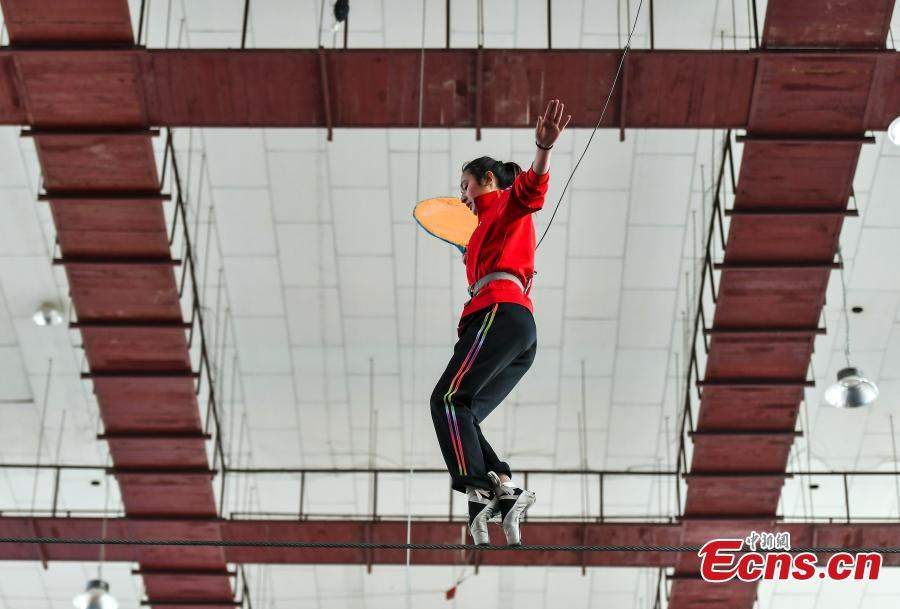Woshurgul Memet, now 19 years old, is an acrobat from a Dawazi art center in Yengisar county, Kashgar prefecture, northwest China’s Xinjiang Uygur Autonomous Region. She has already been engaged in the performance art for nine years.

File photo shows a student walking on a tightrope during a daily training at a Dawazi art center in Yengisar county in northwest China’s Xinjiang Uygur Autonomous Region. (Photo/Chinanews.com.cn)
Tightrope walking is known as Dawazi in Uygur. During a show, a Dawazi performer walks on a tightrope without wearing a safety harness or any protective equipment, while performing high-risk movements.
Dawazi first became a popular activity in Yengisar county and Shache county in Kashgar prefecture, and was later introduced to other areas in Xinjiang.
In 2006, the performance art was awarded with national intangible cultural heritage status in China.
Woshurgul Memet fell in love with the performance art in 2008, when she watched a show presented by Adil Hoshur, a famous Uygur Dawazi artist, at the National Stadium of China, on TV. In 2013, she joined a Dawazi art center in Yengisar county.
In 2016, while presenting a show in front of a large audience, Woshurgul Memet was so nervous that she fell off the rope. She felt remorseful and thought about giving up. However, inspired by the story of Adil Hoshur, who had practiced consistently and diligently before finally achieving his goals, she didn’t quit but practiced the skills even harder.
One year later, at a tourism festival held in Kashgar, Woshurgul Memet staged a performance on a 25-meter-high tightrope. The performance was a success. “Hearing the applause given to me from members of the audience, I felt very happy and proud of myself,” said the young performer.
Established in 2010, the Dawazi art center in Yengisar county has cultivated many inheritors for the artform over the past years. In January 2022, 30 people were selected to join the center to engage in the study of Dawazi, according to He Yali, head of the Dawazi art center.









